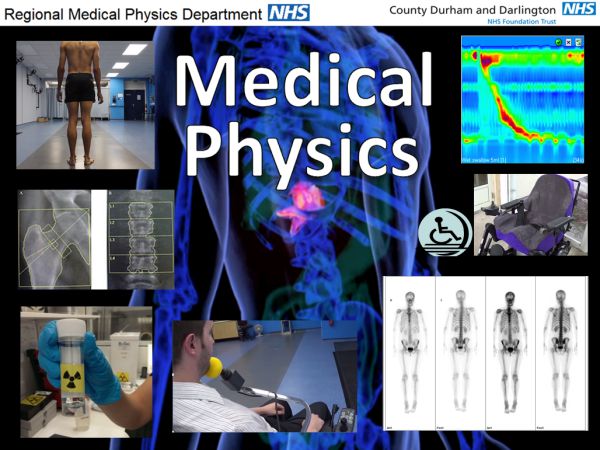
Medical Physics for patient benefit
The practice of Medical Physics involves the application of physics principles in medicine to achieve the goal of patient care.
Daily, medical physicists fulfill a variety of roles behind the scenes that ensure the safe and effective delivery of medical diagnosis and radiation treatment.
This means that medical physicists directly impact the health and lives of many patients who on a regular basis receive medical care using radiation.
Patient Benefits
From the day-old baby requiring interventional radiology examination to identify and correct a congenital condition to the 10-year-old boy undergoing X-ray imaging due to a broken arm to the 20-year-old gentleman receiving CT scan of the pelvis due to hip injury, medical physics applications are at play.
From the 30-year-old pregnant woman being scanned with an ultrasound system to check the health of her unborn baby to the 40-year-old father being scanned on an MRI system for a possible brain tumour, Medical physicists play a crucial role.
For the50-year-old woman getting her yearly mammography examination, the 60-year-old grandfather receiving prostate cancer treatment and the 70-year-old grandmother undergoing treatment for cervical cancer, success cannot be achieved without the work of the medical physicist.
Medical Physics Roles
Medical physicists are the experts in physics, which is central to radiation treatment of cancers, and the development and advancement of medical imaging techniques.
Most of the medical physicists work within hospitals and healthcare systems, where they create innovations to improve patient care by making radiation usage more effective and safer.
Medical physicists perform quality assurance and quality control by ensuring that all medical imaging and radiation equipment is accurately calibrated and functions at optimal levels, and that the procedures and treatments are safe.
As part of the patient-care team, medical physicists work closely with radiographers, radiation oncologists, radiologists, nuclear medicine physicians and other healthcare personnel to design and develop personalised treatment plans.
Working with radiation oncologists, they ensure that cancer patients receive prescribed doses of radiation treatment, targeted to kill the cancerous cells, while protecting healthy tissues.
To improve patient care, medical physicists use innovative ways to consult with patients about the benefits and potential risks of radiation doses in medical imaging and radiation treatment.
Medical imaging benefits from the knowledge and skills of the medical physicist in determining protocols that improve image quality and effectiveness while minimising radiation risk to the patient.
By continually improving medical imaging techniques, from X-ray to ultrasound, mammography to MRI, CT to SPECT scan, medical physicists advance patient care.
Only qualified medical physicists have the skills and training to create and oversee these technologies.
Evolution of Patient Care
Medical physicists play a crucial role in the evolution of medicine and patient care. They continuously look for ways to incorporate new physics discoveries into patient health care and design a software that helps doctors to achieve personalised patient care.
Whether patients are undergoing radiation treatment or receiving diagnostic imaging examination, they benefit from the expertise of a medical physicist.
Without medical physicists’ participation, the implementation of medical radiation procedures can lead to patients receiving incorrect radiation doses which can jeopardise the quality of diagnosis or the success of the medical treatment.
Regulation
In Ghana, medical physicists are regulated by the Allied Health Professions Council through ACT 857 of 2013. The Ghana Society for Medical Physics (GSMP), which is the professional body of medical physicists in the country, teams up with the Allied Health Council to ensure best practices of the professionals.
The society is affiliated to the Federation of African Medical Physics Organisations (FAMPO) and the International Organisation for Medical Physics (IOMP).
International Day each year falls on November 7. Medical physicists all over the world join in the celebration of the International Day of Medical Physics through activities such as workshops, public lectures, symposia, seminars and talk shows.
The 2018 edition of the International Day of Medical Physics celebration is on the theme: “Medical Physics for Patient Benefit”.
It aims to project the many important roles played by medical physicists towards achieving better healthcare outcomes for patients in radiation medicine.
The writer is the Head, Medical Physics Department, School of Nuclear and Allied Sciences, University of Ghana;
Senior Research Scientist, Radiological and Medical Sciences Research Institute, Ghana Atomic Energy Commission; General Secretary, Ghana Society for Medical Physics;
Secretary General, Federation of African Medical Physics Organisations
Writer’s email: haspee@yahoo.co.uk

 Click the link to read your copy.
Click the link to read your copy.